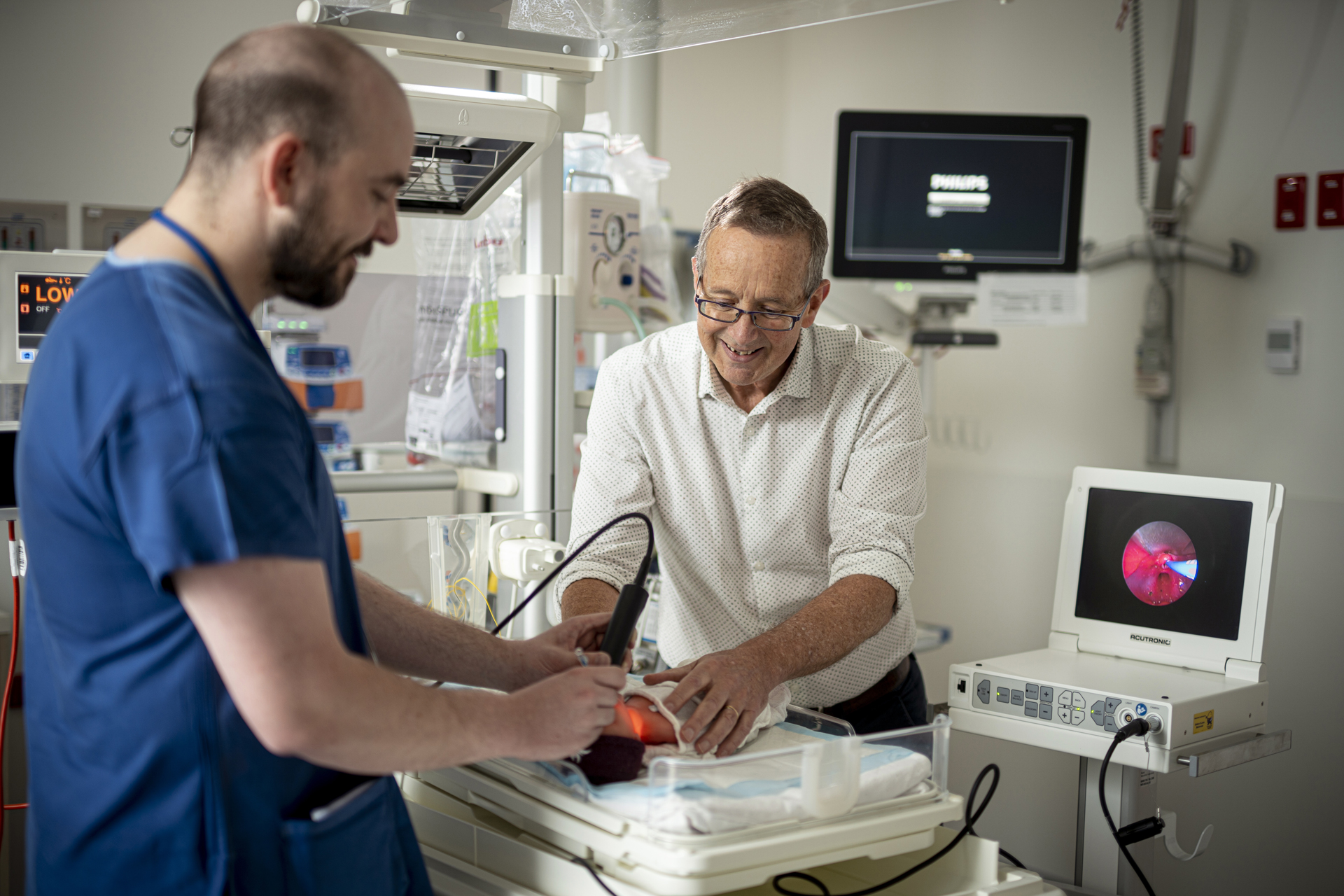
Thanks to the ongoing support of our community, the Royal Hobart Hospital Research Foundation has proudly improved the lives of premature babies worldwide. One recent Foundation-funded study has revealed long-term positive results for a Hobart-designed technique designed to reduce ongoing respiratory problems for babies born too soon.
Pre-term babies often receive a natural product called surfactant, designed to promote lung expansion and improve their oxygen levels. A decade ago, the Foundation funded Professor Peter Dargaville and his team at the Royal Hobart Hospital Neonatal Intensive Care Unit to develop a less-invasive procedure to deliver surfactant to these vulnerable newborn babies. Known as the "Hobart Method", this procedure has been adopted by many neonatal intensive care units worldwide.
More recently, the Foundation funded Professor Dargaville and his team to examine the long-term impacts of this incredible technique through the OPTIMIST-A trial, with the results recently published in the prestigious Journal of American Medical Association (JAMA). The study examined two groups of pre-term babies, with one receiving surfactant via the Hobart Method and another control group that didn't receive the Hobart Method. Incredibly, the study found a 34 per cent reduction in respiratory-related hospitalisations after two years for children who received surfactant via the Hobart method. Parents also reported reduced wheezing and breathing difficulties for children in this active group.
Professor Dargaville proudly states, "We think that the findings of our follow-up study, showing as they did such a significant improvement in respiratory health, will cement the place of this therapy for pre-term infants worldwide."
None of this would have been possible without the support of our donors, who played a pivotal role in turning this vision into reality. Thanks to the generosity of the local community, the Foundation was able to fund the original project and give the research team the necessary boost to successfully carry out the follow-up study to prove the treatment's long-term success.
The OPTIMIST-A trial was coordinated and run by Menzies and supported by the National Health and Medical Research Council.
You can support studies like the Hobart Method by donating to the Foundation at donate.rhhresearchfoundation.org or calling 03 6166 1319.